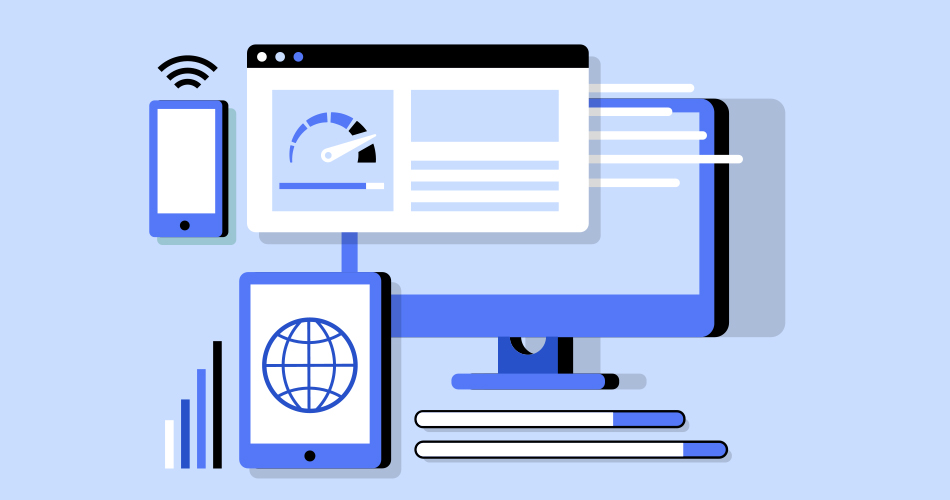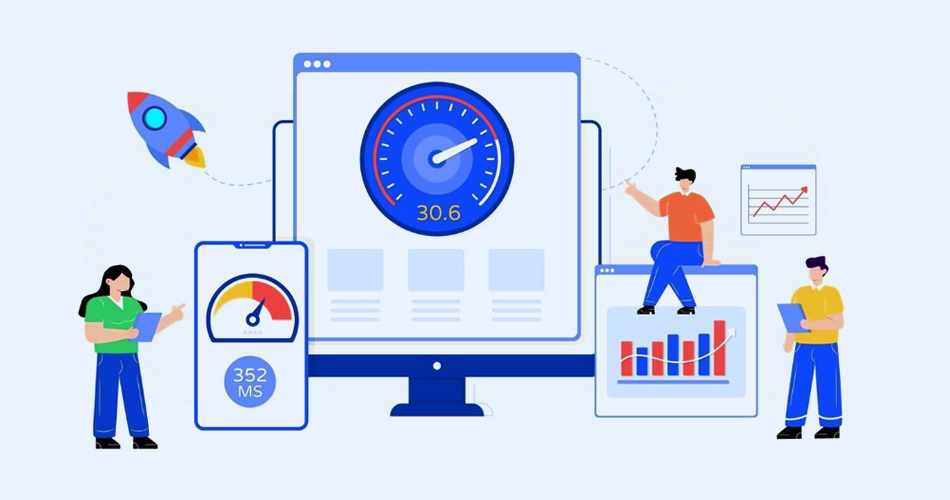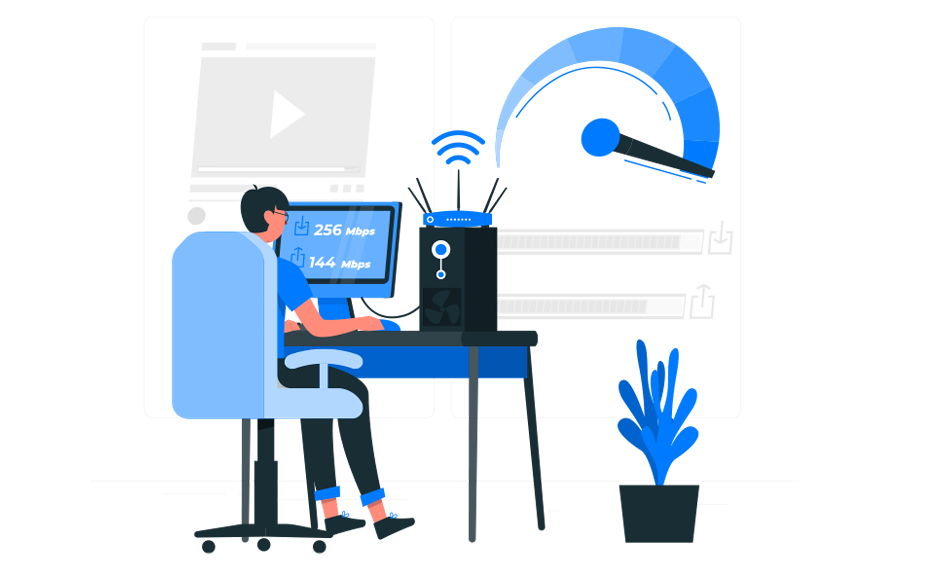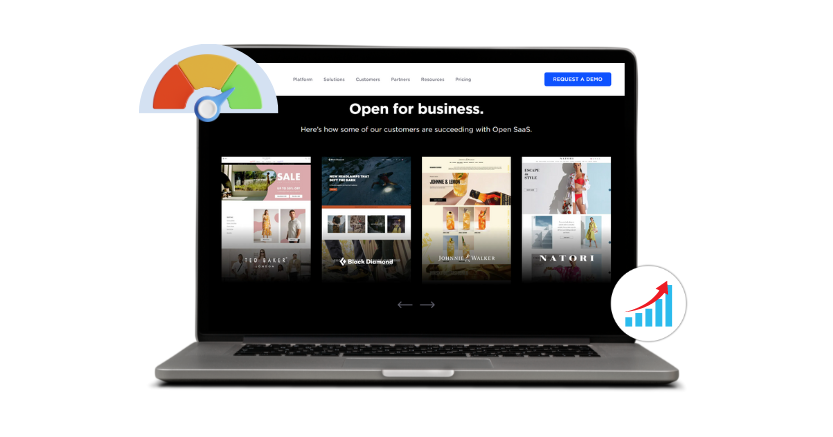TL;DR: Site speed isn’t just a technical detail; it’s a key to growth. It impacts user experience, conversion rates, bounce rates, and even SEO. A fast site delivers the benefits like higher engagement, better trust, and more sales. Go through this comprehensive guide to speed up your website and know why site speed matters.
Today, businesses spend a lot of money on website design, functionality, and content to attract more users and increase engagement. But if your site doesn’t load quickly, all of that work will go in vain. This is why site speed matters for SEO, user experience, and business revenue.
Fast website speed has several benefits that go beyond just aesthetics. It can directly enhance SEO rankings, conversion rates, and loyal customers.
In this blog post, we’ll talk about why site speed is important, how it affects everything from search rankings to conversions, and some of the best tips to make your pages load faster.
What is Website Speed?
Think about the restaurant you like best. You are more likely to leave a good review and come back often if the service is fast and good. But if the service is slow, you probably won’t go again. That’s how the performance of a website works.
Website speed, or page load time, is the time taken for a browser to load your site and make it visible to the visitor. People get angry when a site is slow and hurts your brand’s reputation. On the other hand, a website that loads quickly makes browsing smooth, keeps customers on the site longer, and leads to more purchases.
Why is Site Speed Important?

Website speed is important to engage and retain customers. It also has a direct impact on user engagement, SEO performance, and conversions. Speed is now a key aspect in both user satisfaction and business success because people’s attention spans are getting shorter, and they want pages to load almost instantly.
So, let’s look more closely at why site speed matters and why you should care about it.
1. To Make the User Experience Better
The benefits of fast website speed are apparent, as it creates a good user experience. People are more likely to explore, read, and eventually buy something from your site if they get everything quickly.
Visitors on your site expect to interact quickly and easily. It doesn’t matter how good your content is; if your website is slow, it will leave a bad first impression.
2. Speed is a Crucial Factor for SEO Rankings
Google has confirmed that the site speed is one of the major ranking factors. Search engines provide higher rankings to websites that load quickly, as it’s a positive signal for user experience.
You need to speed up your web pages if you want to get better SEO rankings. Faster pages make it easier for search engines to crawl your site and users to find your website, which both indicate to Google that your site deserves visibility.
3. Speed Affects Conversions
The simple fact is that the speed of a website directly affects its conversion rate. Customers won’t wait to finish their transactions if your website takes too long to load. According to FastCompany, not only small businesses but Amazon could lose billions of dollars in sales each year with even a one-second delay.
The faster your site loads, the higher your conversion rate goes. This is one of the best things about having a fast website: it can make or break your sales funnel.
4. Speed Affects Bounce Rates
Visitors are more likely to stay on your page if it loads faster, which means fewer bounces and more engagement. Most users want a page to load in a few seconds; otherwise, it results in increased bounce rates and loss of valuable customers. Thus, there’s a direct link between page load time and bounce rate.
5. To Make Your Mobile Experience Better
Most of the traffic these days comes from mobile devices. That’s one additional reason why speed is more important than ever for websites. Mobile users sometimes have slower connections than desktop users. Therefore, it’s important to make sure your site loads quickly on mobile.
Google also puts mobile-first indexing at the top of its list of priorities. This implies that the speed of your mobile site might directly affect your SEO rankings. Customers are happier and more likely to buy when they have a good experience on their phones.
How to Improve Webpage Speed – Best Tips

Now that you know why website speed is important, let’s talk about some real things you can do to make your pages load faster and get all the benefits that come with it.
1. Improve Server Response Times
The performance of your site depends on your server. No matter how well you design your pages, slow servers can ruin user experience. Get a good hosting provider and make sure your backend is set up to respond quickly.
2. Optimize Web Images to Reduce the Load
You can make web pages load much faster by compressing images using newer formats like WebP and AVIF. Heavy images are one of the main reasons websites load slowly.
Keep them optimized and delete the ones that are not adding value to your site. Keep a balance between the quality and size of the images.
3. Limit the number of HTTP requests
Every script, image, and CSS file on your page sends an HTTP request. The page gets slower the more requests it gets. Cut down on superfluous things to minimize HTTP requests to speed up page loading and information delivery.
4. Combine and Optimize Files
Combine and minify your CSS and JavaScript files. This cuts down on duplicate code and file sizes, which makes the site load much faster.
5. Browser Caching for Better Revisit Experience
When a user visits your site, the browser cache stores some of its parts on their device. In this manner, your site loads almost instantly when they come back. Browser caching is a great way to speed up web pages for users revisiting your site.
6. Use a Content Delivery Network (CDN)
A CDN sends your material to several servers all around the world. This makes sure that your users will always have faster site loads, no matter where they are. It is one of the best ways to boost both SEO rankings and the experience of users at the same time.
7. Optimize Core Web Vitals
Google’s Core Web Vitals checks important parts of a site’s performance, such as how fast it loads, how interactive it is, and how stable it is. Optimizing Core Web Vitals is an efficient way to enhance SEO and the speed of a website. Sites with good Core Web Vitals not only rank higher, but they also work better in dynamic devices and locations.
How to Check Website Speed?

You have to measure things before you can improve them. You can’t fix your site if you don’t know how quickly it loads. Testing lets you keep track of your work, find problems, and decide what has to be fixed first.
You can use these tools to check and speed up your web pages:
- Website Speedy – An advanced tool to check speed and find fast fixes.
- Google PageSpeed Insights – Gives you extensive reports and tips about how to make your site faster.
- GTmetrix – Looks at how long it takes for a page to load and gives advice on how to make it faster.
- Pingdom – Checks the uptime and performance of your website.
You can use these tools to analyse how your page load speed compares to others and find ways to make it better.
Last Thoughts
By now, it should be very evident why website speed matters a lot. It’s not only about how things look, but it’s also about surviving in the digital market. There is no doubt that a fast website speed helps with SEO and conversion rates.
When you improve webpage speed, people are less likely to leave, they stay on the page longer, and they make good first impressions. You also make sure your site will work with mobile traffic in the future and match Google’s ranking standards.
What you need to know is, don’t forget about how well your website works. Every second matters. Start optimising today because site speed has a bigger impact on your bottom line, SEO, and conversion rate than you might imagine.















































